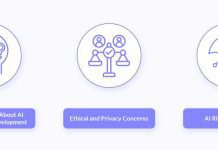Key Takeaways:
- MMIs provide an innovative and effective way to evaluate various candidate competencies.
- Soft skills have become increasingly critical in the digital age, and MMIs cater precisely to this need.
- While MMIs offer a plethora of benefits, proper planning and execution are necessary for them to be successful.
- Candidates can strategically prepare for MMIs to enhance their chances of success.
- MMIs will likely become more prevalent in recruitment as companies continue to innovate.
Table of Contents:
- Understanding Multiple Mini Interviews
- Assessing Soft Skills through MMIs
- Advantages of Multiple Mini Interviews
- Challenges in MMI Implementation
- Candidate Strategies for MMI Success
- Recruiter Insights into MMI Advantages
- Conclusion

Understanding Multiple Mini Interviews
The world of recruitment is undoubtedly evolving, with multiple mini interviews (MMIs) reshaping traditional hiring practices. This interview format diverges significantly from conventional methods by utilizing short, focused assessments that aim to test a range of competencies. The intention is to move away from the often scripted and rehearsed answers of traditional interviews and towards a more genuine and multifaceted exploration of candidates’ abilities and personal attributes. Unlike the typical one-to-one interview, MMIs offer a comprehensive platform for candidates to demonstrate their critical thinking, ethical decision-making, and practical skills. Each station in an MMI circuit presents distinct challenges ranging from role-playing exercises to problem-solving discussions, offering employers a rounded view of each candidate’s strengths and weaknesses across various domains.
Assessing Soft Skills through MMIs
In the contemporary job market, soft skills are increasingly valued alongside technical knowledge and experience. MMIs cater to this paradigm shift by enabling companies to thoroughly evaluate a candidate’s interpersonal skills, adaptability, and ability to handle pressure—all essential qualities in today’s fast-paced and dynamic workforce. This multi-angle approach facilitates a broader and more equitable assessment process, as it minimizes interviewer biases and emphasizes the importance of soft skills. Employers recognize that technical skills can often be taught, but the intrinsic qualities that define excellent communicators and team players are more challenging to instill post-hire. MMIs effectively unearth these core skills, enabling better alignment between a candidate’s profile and the organization’s cultural and operational needs.
Advantages of Multiple Mini Interviews
One of the main advantages of the MMI format is the robust and holistic assessment of a candidate’s potential. They allow recruiters to observe candidates in action, facing scenarios that mirror real-world challenges. MMIs have been associated with successful prediction of candidates’ future performance, especially in teamwork and communication—a testament to their validity and utility in the selection process. Furthermore, MMIs can serve as a mitigating factor against the risk of hiring bias by involving multiple assessors and varied tasks. Each mini-interview adds a layer of objectivity, and aggregating diverse opinions leads to a more equitable and comprehensive candidate evaluation.
Challenges in MMI Implementation
Although the benefits of MMIs are clear, their implementation has certain hurdles. The logistics of setting up MMIs can be intricate, involving the coordination of numerous interviewers, developing different interview stations, and managing the flow of candidates through the circuit. Organizations must allocate time and resources effectively to ensure that the process runs smoothly and that each mini-interview station is crafted to elicit relevant and informative responses from candidates. Despite these challenges, the depth and breadth of data on candidate performance collected from MMIs can justify the investment. With thoughtful planning, execution, and reflection post-MMI, the insights gained can lead to better hires and a more capable and harmonious workforce.
Candidate Strategies for MMI Success
The prospect of an MMI can be challenging for even the most seasoned job seekers, but careful preparation can make all the difference. Candidates are encouraged to thoroughly research the likely format and content of the MMIs they will encounter. It might include seeking resources and advice, such as articles from reputable sources, which offer strategies for successful interviews. Practice is also vital; mock interviews and situational judgment tests can develop the agility and reflexes needed to excel in MMI stations. By approaching MMIs with strategic preparation and a composed mindset, candidates can effectively maximize their performance and display their qualifications and suitability.
Recruiter Insights into MMI Advantages
From the recruiter’s lens, MMIs offer invaluable advantages. Beyond breaking the monotony of traditional interviewing, MMIs engender a rich dialogue and interaction with the candidate. This immersive process provides recruiters with comprehensive insights into a candidate’s problem-solving methods, ethical reasoning, and ability to communicate under stress—traits that are vital but often challenging to gauge through standard interviews. By carefully designing each station to reflect the core responsibilities and challenges of the role, recruiters can ensure a fair and practical assessment, aligning the selection process with the organization’s strategic objectives. This level of detail and precision in candidate evaluation underscores the utility and future potential of MMIs in recruiting top talent.
Conclusion
In conclusion, multiple mini-interviews significantly advance the recruitment arena, offering a nuanced and comprehensive method for assessing a wide array of candidate skills and attributes. Both candidates and organizations stand to benefit from the depth of understanding and insight garnered through this innovative approach. As the business environment progresses, MMIs will play a key role in shaping talent acquisition and will be essential in hiring.

Founder Dinis Guarda
IntelligentHQ Your New Business Network.
IntelligentHQ is a Business network and an expert source for finance, capital markets and intelligence for thousands of global business professionals, startups, and companies.
We exist at the point of intersection between technology, social media, finance and innovation.
IntelligentHQ leverages innovation and scale of social digital technology, analytics, news and distribution to create an unparalleled, full digital medium and social business network spectrum.
IntelligentHQ is working hard, to become a trusted, and indispensable source of business news and analytics, within financial services and its associated supply chains and ecosystems.































